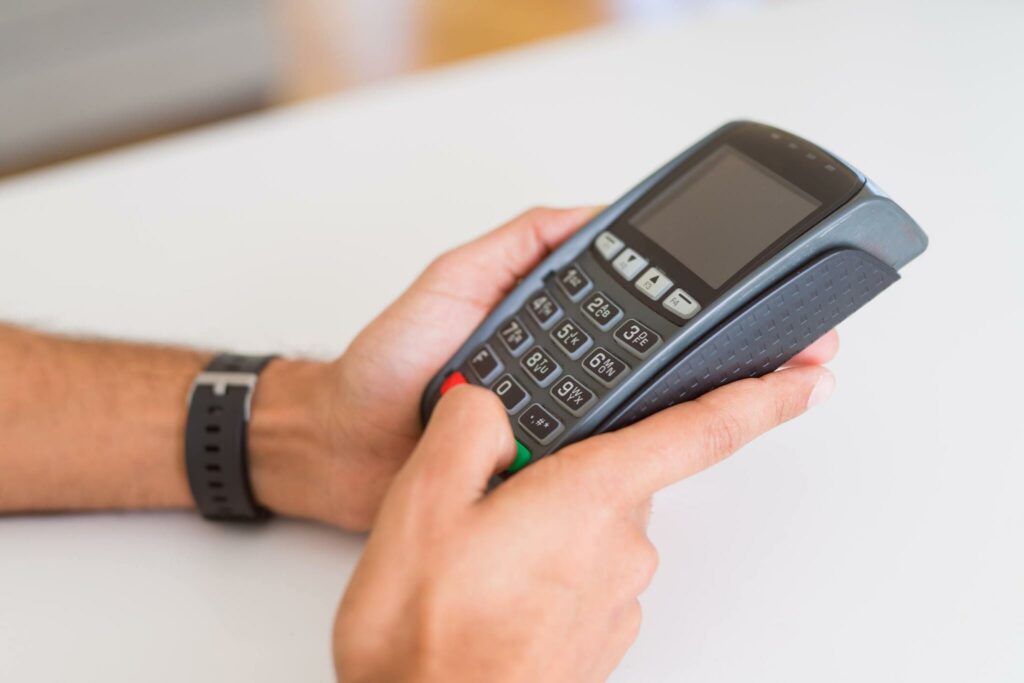Introduction:
In the vibrant and diverse landscape of Syracuse’s hospitality industry, a transformative wave has swept through, ushering in a new era of operational efficiency, elevated customer experiences, and technological sophistication with the integration of cutting-edge Point of Sale (POS) technology. This pivotal shift stands as a cornerstone for businesses striving to modernize their operations, surpass customer expectations, and maintain a competitive edge in an ever-evolving market. In this comprehensive exploration, we will meticulously unpack the multifaceted benefits and far-reaching implications that the integration of POS technology brings to Syracuse’s diverse and bustling hospitality sector.
Streamlined Operations:
The integration of POS technology signifies a monumental shift in how businesses in Syracuse navigate their daily operations. Traditional manual processes of order-taking and payment handling are now being seamlessly replaced by automated systems, heralding a new era of operational efficiency. This not only significantly reduces wait times but also mitigates the occurrence of errors, fostering a more seamless and enjoyable experience for both customers and staff. By automating routine tasks, businesses can strategically allocate their human resources, allowing staff to focus on delivering a higher quality of service and cultivating a welcoming and attentive atmosphere.
The advantages extend beyond customer-facing interactions; back-end processes such as inventory management, staff scheduling, and sales reporting also benefit from streamlined automation. This holistic approach to operational efficiency positions businesses to not only meet current demands but also to adapt swiftly to future challenges.
Efficient Order Management:
POS systems are instrumental in revolutionizing order management within Syracuse’s hospitality establishments. The challenges of miscommunication and delays in order processing, which were once common, are now mitigated through advanced features integrated into POS systems. Real-time communication between different departments facilitates more efficient order processing, reducing the time it takes for orders to reach customers’ tables. The seamless integration of inventory management into the POS system ensures that businesses maintain optimal stock levels, contributing to quicker and more accurate order fulfillment. This heightened efficiency enhances the overall dining or lodging experience, fostering positive customer perceptions and encouraging repeat business.
In addition to expediting order fulfillment, POS technology allows for dynamic menu adjustments. Businesses can easily update menus, add seasonal items, or modify prices in real-time, ensuring that customers always have access to the most up-to-date offerings. This adaptability not only enhances the customer experience but also enables businesses to respond promptly to market trends and seasonality.
Enhanced Customer Experiences:
In an era where customer experiences are paramount, POS technology emerges as a critical enabler for businesses seeking to surpass expectations. The customization options inherent in these systems empower patrons to tailor their orders to their preferences, fostering a sense of personalization that resonates with modern consumers. Integrated loyalty programs and customer relationship management (CRM) tools enable businesses to build stronger connections with their clientele. By leveraging data on customer preferences and behaviors, businesses can anticipate needs and provide a level of service that transcends expectations. This not only cultivates loyalty but also stimulates positive word-of-mouth, a powerful driver for sustained business growth in the competitive hospitality sector.
Moreover, the wealth of customer data accumulated through POS systems allows businesses to create targeted marketing campaigns, tailoring promotions and offerings to specific customer segments. This personalized approach enhances engagement and strengthens the relationship between businesses and their patrons.
Inventory Management and Cost Control:
Effective inventory management is a linchpin for success in the hospitality sector, and here too, POS systems prove invaluable. The real-time visibility into inventory levels provided by these systems enables businesses to make informed decisions about restocking and avoid stockouts. This proactive approach not only minimizes wastage but also contributes to better cost control. By optimizing stock levels based on real-time data, businesses can reduce carrying costs and improve overall operational efficiency. The seamless integration of inventory management into the POS system is, therefore, a strategic tool for businesses aiming to maximize profitability, minimize unnecessary expenses, and operate with a sustainability mindset.
Additionally, POS systems enable businesses to analyze historical sales data, identify popular items, and adjust their inventory accordingly. This data-driven approach ensures that businesses can cater to changing consumer preferences, optimize their menu offerings, and enhance the overall dining experience.
Data-Driven Decision Making:
The integration of POS technology empowers businesses with the transformative ability of data-driven decision-making. These systems provide a treasure trove of information on sales, customer preferences, and operational trends. By harnessing this wealth of data, establishments can make informed decisions about menu changes, marketing strategies, and overall business growth. Advanced analytics allow businesses to identify trends, patterns, and correlations, providing insights that are invaluable in adapting to changing customer preferences and market dynamics.
Furthermore, POS systems facilitate detailed performance reporting, enabling businesses to evaluate the success of promotional campaigns, assess the popularity of specific menu items, and identify areas for improvement. The ability to make data-driven decisions positions businesses for sustained success in a highly competitive industry where agility and adaptability are essential.
Secure Payment Processing:
In an age where data security is a paramount concern, POS systems provide secure payment processing solutions. The encryption of transactions and adherence to industry standards ensure the protection of customer payment information, fostering trust and confidence. By implementing robust security measures, businesses not only protect their patrons but also safeguard their own reputation from potential security breaches. The secure payment processing capabilities of POS technology are crucial in maintaining the integrity and trustworthiness of financial transactions within the hospitality sector.
The emphasis on secure payment processing goes beyond mere compliance; it is a testament to businesses’ commitment to safeguarding the financial well-being and personal information of their patrons. This, in turn, contributes to the establishment of a trusted and reputable brand image.
Conclusion:
The transformation of Syracuse’s hospitality industry through the integration of Point of Sale technology is nothing short of a technological revolution. From streamlining operations to enhancing customer experiences, enabling data-driven decision-making, and ensuring secure payment processing, the adoption of modern POS systems is proving to be a strategic investment for businesses looking not only to survive but thrive in the dynamic world of hospitality.
As technology continues to evolve, Syracuse’s hospitality sector finds itself at the forefront of innovation, poised to deliver seamless and memorable experiences for patrons. The fusion of human-centric service with advanced POS technology is reshaping the industry’s landscape, creating a synergy that not only meets but anticipates the needs of today’s discerning customers. The future holds immense promise as Syracuse’s hospitality businesses leverage technology to navigate the competitive landscape and set new benchmarks for excellence.
In embracing the digital era, Syracuse’s hospitality establishments are not merely adopting technology for the sake of it; they are leveraging it as a catalyst for positive change. The convergence of operational efficiency, enhanced customer experiences, and data-driven insights positions these businesses on the path to sustained success. As the hospitality sector in Syracuse continues to evolve, the integration of POS technology serves as a beacon, guiding businesses toward a future where innovation and customer satisfaction are the cornerstones of their success.
The journey has just begun, and with each technological stride, Syracuse’s hospitality industry is shaping a future where excellence is not just a goal but a standard. The fusion of tradition and technology paints a compelling picture of an industry that honors its roots while embracing the possibilities of the future. As Syracuse’s hospitality sector navigates this transformative landscape, it sets the stage for a new chapter—one defined by seamless experiences, data-driven strategies, and a commitment to exceeding customer expectations. The integration of POS technology is not merely a makeover; it is a catalyst for a renaissance in hospitality—a renaissance that promises to elevate Syracuse’s hospitality industry to new heights of success and distinction.

